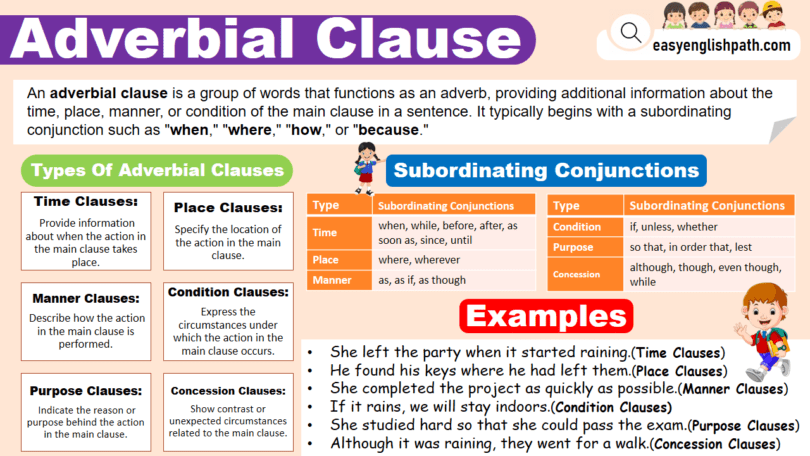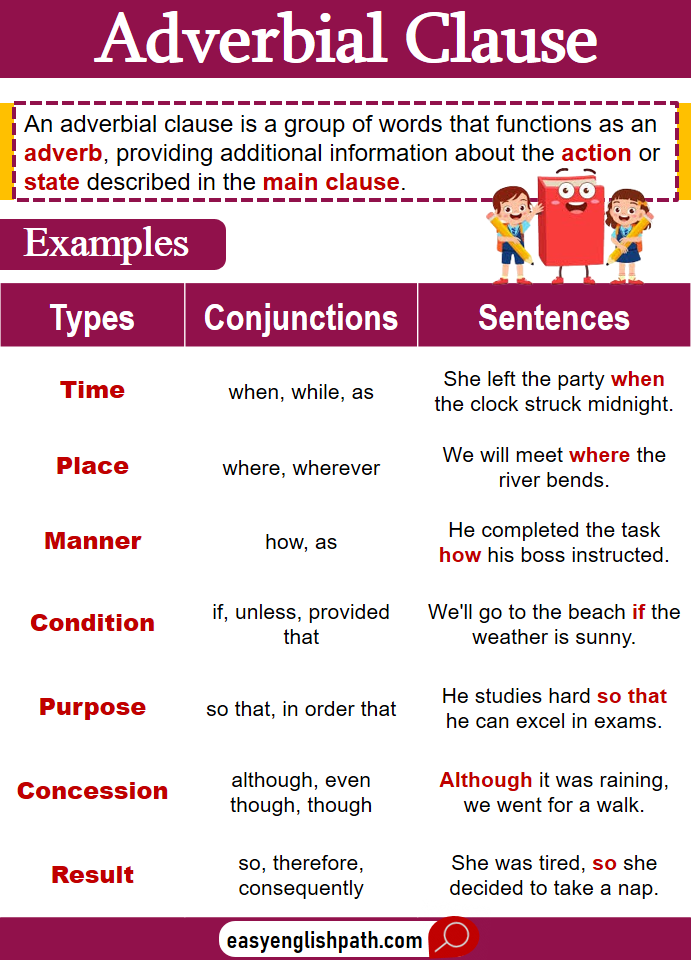

Adverbial clauses are parts of sentences that give more information about when, where, why, how, or under what conditions something happens. They often start with words like because, if, when, although, or while. Using adverbial clauses helps us share ideas and actions more clearly. For example, I will call you when I get home. Learning to use them well is important for clear communication in English.

Master Adverbial Clauses: Types, Definitions, and Examples
An adverbial clause is a group of words that acts like an adverb in a sentence. It gives more information about when, where, why, how, or under what conditions something happens. Adverbial clauses usually start with words like because, if, when, although, or while.
♦ Time Clauses:
A time clause is used to tells us when something happens. It often begins with words like when, while, before, after, as soon as, or until.
♦ Place Clauses:
Place clauses are used to describe the location or position where an action happens. They often begin with words like where, wherever, or the place where.
♦ Manner Clauses:
Manner clauses describe how an action is done. They often begin with words like like, as,’ or as if.
♦ Purpose Clauses:
Purpose clauses are used to tell us why something is done. They often start with words like so that, so that, or to.
♦ Condition Clauses:
Condition clauses are used to talk about situations that depend on certain conditions being met. These clauses often start with words like if or unless.
♦ Contrast Clauses:
Contrast clauses are used to show a difference or opposite idea. They often use words like but, although, or while.
♦ Cause Clauses:
Cause clauses are used to explain the reason or cause behind an action in a sentence. They often begin with words like because, since,’ as, or so that.
♦ Result Clauses:
Result clauses are used to show the consequence or outcome of an action in a sentence.
♦ Concession Clauses:
Concession clauses show that even though one thing is true, another thing is also true. They often use words like although, though, or even though.
♦ Comparison Clauses:
Comparison clauses are used to show similarities or differences between two things. They often use words like than or as to make comparisons.
You May Also Like